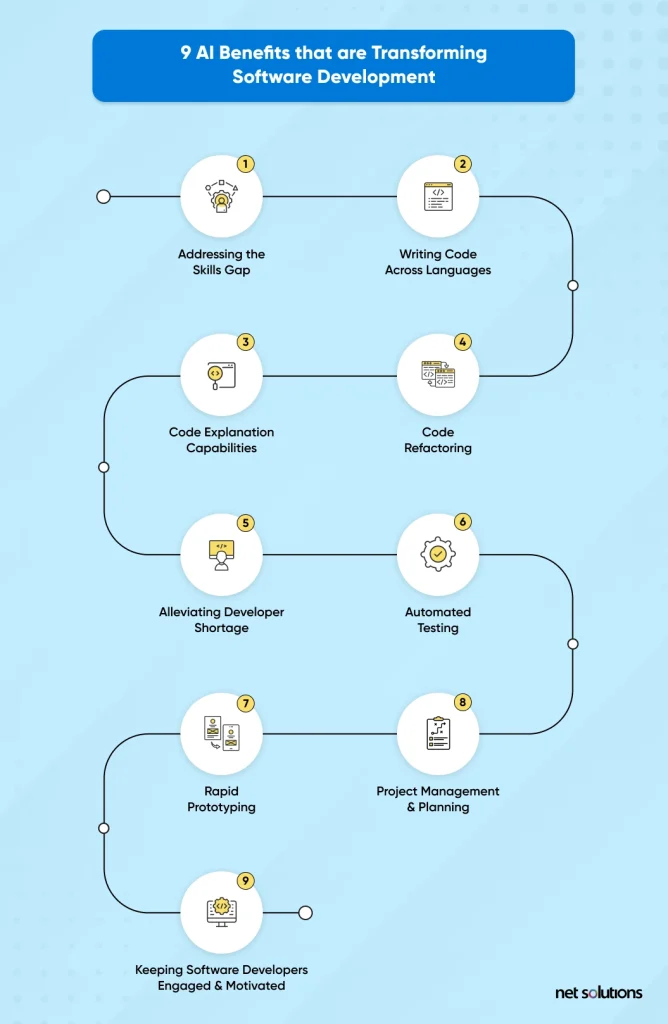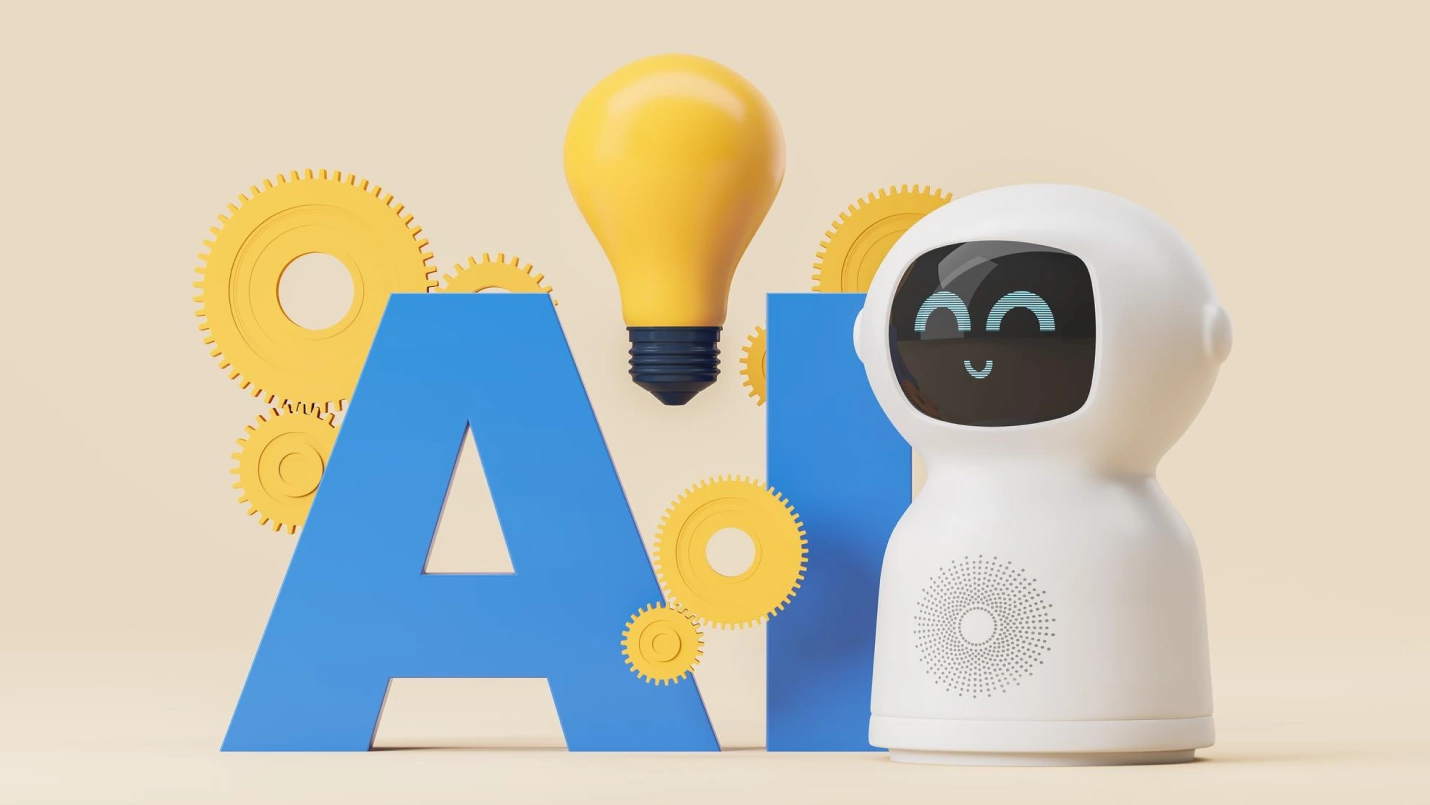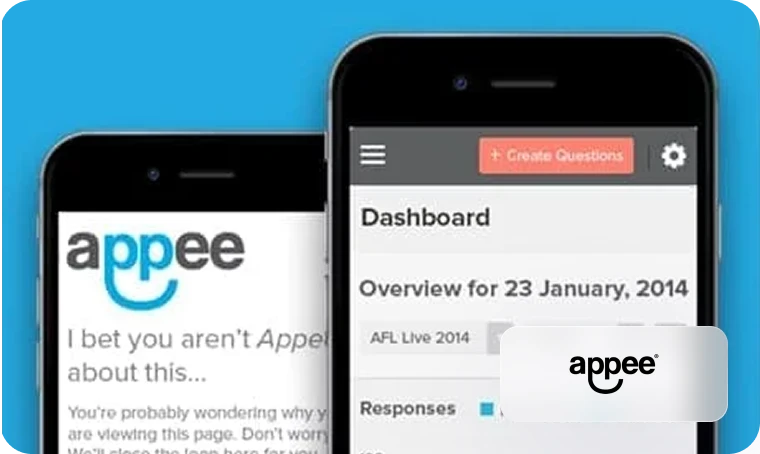AI is transforming how we build software products, and those who fully use this technology will build higher-quality products at a rate that outpaces their competition.
As the CEO of a 500-person software development firm, we use AI to support our software developers and extend their capabilities. And despite widespread fears of job loss, AI has not replaced a single software engineer on our team.
As many thought leaders have pointed out, AI will not replace developers in the foreseeable future, but developers using AI will replace those who refuse to learn and apply the technology.
As in the natural world, the biggest threat to a business’s success (and, by extension, its employees’ jobs) is a refusal to adapt. Here’s how tech execs can adapt quickly to a changing world, using AI to support their development efforts.
Guidance for CTOs, CEOs, and other leaders
I wrote this blog post to help business and IT leaders harness the power of AI. The latest technology can boost productivity, automate the more mundane aspects of programming, and help software engineers produce clean, effective code at record speed.
As Inbal Shani, GitHub’s Chief Product Officer, points out in a recent podcast, today’s software developers are expected to have a wide range of skills. We require them to strategize, collaborate, communicate across different departments, and think strategically about product roadmaps and systems as a whole. AI allows software developers to focus on these tasks, relieving some of the burden of producing and reviewing code.
According to a survey of executives published by Deloitte, 51% cited “enhancing the features, functions, and performance of products” as a top benefit of AI. An additional 36% listed “freeing up workers to be more creative” as a top benefit.
With AI, developers can focus their human intelligence where it’s ideally suited—on those complex solutions and larger strategy questions that leave AI scratching its virtual head.
9 AI Benefits that Are Transforming Software Development

Every business must protect its bottom line to survive and thrive, which involves reducing labor inefficiencies without impacting quality.
With its systematic approach to process management, the software industry has done an excellent job of maximizing efficiency and reducing errors by adopting DevOps, Agile, and other methodologies. AI is simply another tool to boost efficiency, quality, and profits.
Here are nine benefits of AI that are helping organizations reduce time-to-market, improve efficiency, reduce the talent and skills gap, and produce superior software.
Benefit #1: Addressing the skills gap
The current developer shortage has produced a significant skills gap among software engineers, with companies hiring more junior developers, hoping they’ll have the energy and capacity to expand their skill sets on the job.
AI can be a valuable learning tool for new and seasoned developers who want to branch out and learn a new specialty. Simply put, AI can curate a guide with links to valuable resources for learning any programming language or framework.
For example, we asked ChatGPT to create a learning plan for a developer to update their C++ skills, and it quickly curated a list of topics that included understanding modern concepts and the latest C++ standards (e.g., C++20), brushing up on Object-Oriented Programming (OOP), understanding memory management, and 13 other items.
ChatGPT also curated a list of online courses, books, documents, conferences, and video tutorials that developers could use to update their C++ skills. Naturally, a senior developer needs to sort through these resources and select the most credible sources, but ChatGPT’s list provided a good start.
Benefit #2: Assistance writing code across a vast array of languages
Thirty years ago, a software developer who knew C, C++, and Objective-C was considered well-versed in active, popular programming languages. However, the rise of the internet in the mid-90s saw a boom in popular programming languages, including Visual Basic, Python, Ruby, Java, PHP, JavaScript, and others.
The sheer volume of new languages has continued to grow, and today, we’re seeing new languages like Kotlin, Swift, Dart, Rust, and Go. Given the many languages available and each team’s reasons for choosing one over the other, being a full-stack developer requires a working knowledge of various languages.
Fortunately, AI-assisted software development has relieved developers from the burden of learning each language’s intricacies. Sure, programmers still need to understand the fundamentals of any language, but AI can help with the details.
Tools like AWS’s Whisperer and Github’s Copilot can help software engineers write code using a variety of languages, taking care of particular syntaxes and language nuances that developers would otherwise have to memorize.
These AI-based tools can perform several tasks to guide developers, including:
- Code generation: Generating entire blocks of code, which developers can tailor to their needs
- Code suggestions: Offering suggestions to improve and streamline code
- Code autocompletion: Automating some of the mundane processes of coding
- Cross-device compatibility: AI can streamline the laborious process of ensuring that software works across all devices
- Mastering cloud computing: Cloud computing brings a new level of complexity to software creation. AI can assist developers when building apps with a modern, cloud-native architecture.
Like all AI, these apps are continually learning. Drawing from code in existing repositories helps them regularly improve their suggestions and completions, and they can generate simple code using natural language prompts.
Benefit #3: Code explanation capabilities
Whether a developer is brand new to the team or rewriting or refactoring code they’ve never encountered before, AI-powered code explanation can come in handy.
AI code explainers will analyze a line of code and determine its structure and functionality. Then, it will comprehensively explain the code, its logic, and what it does. Pretty impressive, no?
This can help developers in several ways, including:
- Quickly explaining and simplifying a code base that may be highly complex
- Facilitating collaboration and knowledge-sharing within and across developer teams
- Assisting teams to standardize the way they discuss, write, and work with code throughout the organization
Developers still need a working knowledge of the programming language they’re using and the software they’re building, but code explainers can quickly get everyone on a project up to speed. This software can help developers understand the intricacies of the software’s code and its unique demands so they can roll up their sleeves and get to work.
Github’s Chief Product Officer Inbal Shani continually stresses her conviction that Copilot is just that—a “Co”-pilot that will continue to require a pilot in the foreseeable future. You still need a developer behind the wheel who can think about the big picture and add that creative human spark.
In the past, junior developers were expected to focus exclusively on coding in the early stages of their careers, while senior developers focused on systems. Thanks to AI, unseasoned developers can spend more time learning about your environment from the start. They focus on learning about products and the larger systems that tie everything together, making greater contributions than ever.
Benefit #4: Code Refactoring
When developers set out to improve or completely refactor a software product’s underlying code, they can use AI to support their efforts. Code-refactoring systems powered by AI use Machine Learning (ML) and pattern recognition derived from advanced analytics to generate feedback on refactoring strategies.
AI-powered refactoring software can help with:
- Renaming variables
- Restructuring existing code
- Cleaning up code by eliminating duplicates
- Applying design patterns throughout the software application
This expedites the refactoring process and improves readability and modularity. AI can also learn from code repositories and guide on implementing best practices.
Benefit #5: Alleviating the developer shortage
As everyone working in tech today knows, there’s a shortage of software engineering talent that isn’t going to disappear anytime soon. In fact, a Deloitte study found that 50% of executives considered talent acquisition a top challenge in today’s market.
90% of today’s Fortune 500 companies are addressing the developer shortage through IT outsourcing, which is an excellent solution. However, AI can also help address this challenge. Not only does AI automate many tasks, but it can also help companies acquire strong in-house talent.
AI recruitment tools like Vervoe, Humanly, and Paradox help recruiters identify and connect with top talent in various ways. Here are some things AI can support on the recruiting front.
- Identifying candidates: Using natural language processing, AI can comb through resumes and LinkedIn profiles to spot strong candidates based on the skills you’re looking for. Additionally, it can identify factors that correlate with employment longevity so recruiters can reduce the risk of high turnover.
- Candidate screening: AI can help expedite background checks, employment verification, and other due diligence tasks that include a fair bit of simple labor.
- Scheduling and confirming interviews: When candidates don’t show up for a scheduled interview, it takes valuable recruiting time away from HR professionals. AI can send automated reminders to reduce no-shows.
- Tracking employee engagement: Employees who feel engaged in their work are in the minority these days. A Gallup poll found that only 21% of the global workforce feel engaged in their jobs, leading to high turnover.
Applications like Microsoft Viva Glint can process employee surveys to gain insights and strategies for improving engagement and longevity. They rely heavily on sentiment analysis and other AI-based technologies.
- Other areas within the product development cycle: AI can help with project planning, gathering requirements, estimating costs, planning Agile spirits, managing feedback, and QA testing.
All these AI-based applications can help recruiters use their time more effectively, reducing the costs of recruiting talented developers in an era when tech talent is in high demand and supply is limited.
Benefit #6: Automated Testing
AI can also significantly help with QA, from searching for bugs to spotting cybersecurity holes and threats. Products like Copilot can be used for unit testing, load testing, infrastructure testing, penetration testing, and more.
Here are some of the ways AI can help automate and improve testing.
- Screen large volumes of data: AI can quickly screen massive volumes of data, finding bugs and security holes.
- Test case optimization: AI can optimize and speed up test cases, allowing QA specialists to focus on critical areas and liberate themselves from simpler tasks.
- Self-healing mechanisms: Certain AI tools spot bugs and inefficiencies and can fix them all on their own.
- Spot suspicious patterns: Within those large volumes of data, AI can notice and report suspicious patterns and potential threats.
- Recognize bots quicker: Captchas are the first line of defense, but they’re not perfect. AI can help spot behavior that looks like a bot—robots recognizing their own if you will.
Of course, you’ll need an expert hand guiding the technology like everything else involving AI and ML. It takes a human being to verify results and build the larger strategy, and that’s where QA specialists and cybersecurity experts are needed most.
Benefit #7: Rapid prototyping
Prototyping is key to creating software that stands a good shot of making a splash in the market and delivering an intuitive solution that customers value. And thanks to AI, design and development teams can expedite the prototyping process.
Various AI prototyping tools achieve this through natural language processing, building wireframes, and identifying user workflows based on prompts. AI can also use automated code generation for quick refinements and rapid iterations.
Benefit #8: Project management and planning
Strategic management is key to hitting milestones and improving time-to-market for every software release. When used strategically, AI gives project managers and their development teams a powerful competitive edge.
AI can help expedite project planning in several ways, including:
- Project scoping: AI can use predictive analytics based on project data to predict timelines, resources required (monetary and human resources), and any potential risks that could take the project off track.
- Risk reduction: Based on the same predictive analytic tools used for scoping, AI can help project managers and team leads manage to address and mitigate risks.
- Architecture planning: AI can help software engineers discover more efficient, scalable architecture solutions.
- Code reusability: AI can scan codebases to spot reusable components, which is a huge time saver.
Just like with developers, we still need talented human project managers to guide AI in the process since only a human being can truly grasp the big picture. They can simply do it faster, more efficiently, and better with AI by their side.
Benefit #9: Keeping software developers engaged and motivated
One thing that’s easy to overlook is AI coding products’ positive impact on morale.
Let’s face it: some coding elements can be tedious and repetitive for your most talented developers. AI liberates their time and mental energy from the burden of repetitive tasks, allowing them to focus on the far more interesting and creative elements of software development.
Github surveyed Copilot users to learn what developers thought of the product. The survey explored how AI impacted their day-to-day work, and the results are encouraging.
- 88% of Copilot users felt less frustrated and more focused
- Developers wrote code 55% faster with AI
- Code reviews were completed 15% faster
- 85% of developers using the software felt more confident about the quality of the code they produced
Happier, more productive software developers who retain the mental energy to focus on the big picture produce better products more efficiently. Rather than eliminating jobs, AI allows software developers to increase their output and add value while improving their daily work life.
Looking for an Outsourcing Partner that Understands AI?
Both outsourcing and AI can help address the talent shortage, skills gap, and other pressing issues. Those outsourcing firms that understand and employ AI in their processes can help you produce quality software more efficiently, while late adopters will need help to catch up.
Net Solutions is a full-service software development firm that regularly integrates cutting-edge technology, including AI, into its development processes. We’ve worked with countless startups and leading enterprises for over 20 years, including the Harvard Business Review, IMG, and Euro Car Parts.
Talk to one of our specialists today to learn how we can support your software development efforts with top-notch software engineers, designers, testers, and project managers who will make full use of AI to help you achieve your goals.



